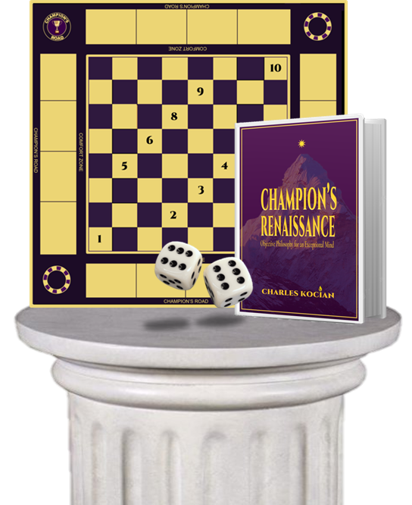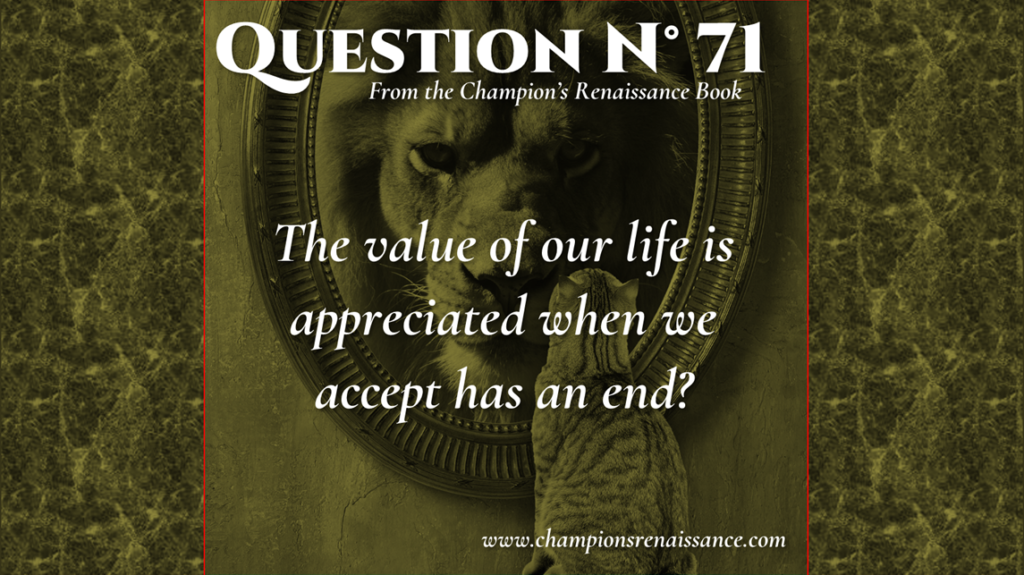
(Answer at the end).
SIMULACRUM
By Charles Kocian
We know existence exists independently from consciousness, but our consciousness usually doesn’t match objective reality. For example, alcoholics and drug addicts, deny they are sick; mystics, deny their lives will end; NATO and UN Security Council deny the Minsk agreements; Ukraine, deny they cannot win the war; the Inquisition, denied the Earth moves around the Sun. But objective reality not only exists independently from man’s opinions, it exists before its representations of the world. So, to pursue our happiness we should represent reality in our minds accurately, otherwise we are acting in a dangerous simulacrum. The extreme simulacrum are clinic cases of psychotic experiences that can produce hallucinations.

Psychotic experiences can produce hallucinations.
In the Renaissance, the Roman Catholic Church said that the cause of the plague was God’s punishing the sins of the people. Was that an intellectual hallucination of the Church? The Vatican called people to repent, pray and organize religious marches. Science didn’t know that the cause was the bacteria Yersinia pestis, transmitted from rodents to humans. The University of Paris scholars said that the alignment of planets had caused evil vapours drew up from the earth contaminating the air. To combat the plague, the experts of those days recommended to burn incense, carry flowers, wear religious medals or bleed patients to remove the “bad humour.” Today we know their explanation was not based on biology, but a hallucinated representation of reality: a simulacrum.

The Black Death was caused not by man’s sins but from a bacteria.
In ancient Greece Epicurus was a philosopher born on the Greek island of Samos. Like Aristotle, he was an empiricist philosopher who observed that human knowledge derived from its five senses. Taking distance from Platonism, he stablished its own school admitting woman and slaves. For him, philosophy was a tool who could help man to live a self-sufficient life surrounded by friends towards achieving eudaimonia and ataraxia (long term sustainable happiness). He discovered that the fear of death was the cause of anxiety. Man should act morally, he said, not because the fear of gods’ punishments or rewards afterlife, but because immoral actions lead to remorse, preventing man from attaining ataraxia.
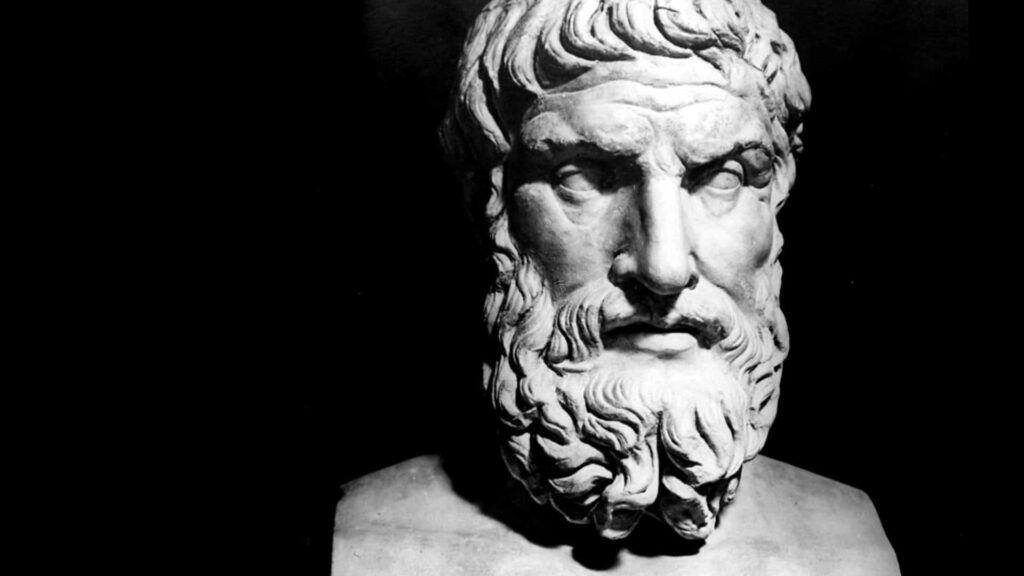
Epicurus.
Epicurus said sensory perceptions could not deceive man to represent the objective physical world. He favoured natural explanations over theological ones in a scientific approach to seek the truth. Its ethics sustained that a good man should pursue first its own interests and happiness without harming others, and all humans should prioritize to pursue the state of ataraxia, which is a state in which man is completely free from all pain and suffering. He said that afterlife is a ridiculous superstition, and that man should not have fear of death, because “when we are, death is not come, and, when death is come, we are not”. He also said that a person can only be happy by living wisely, soberly, and morally, because the pleasant life is produced not by a short-term pleasure but by a sustained pleasure derived from rational integrity. He observed that a man with a dishonest logic has a disintegrated conscience, therefore he was not able to reach ataraxia.
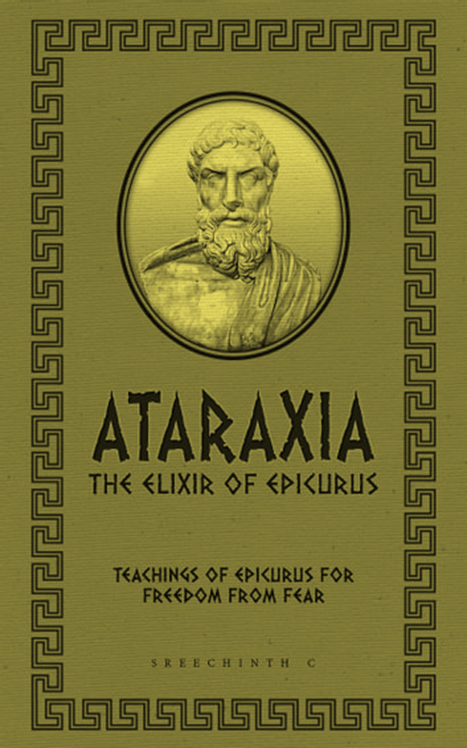
Epicurus Ataraxia.
For Epicurus, its philosophy was a pleasure in itself, because it allowed man to represent the natural world accurately, that is, to live without cognitive dissonance between the world and its representation. He said: “… in philosophy, delight keeps pace with knowledge. It is not after the lesson that enjoyment comes: learning and enjoyment happen at the same time.” In the Renaissance Leonardo DaVinci said: “The noblest pleasure is the joy of understanding.” Einstein replicated later with: “I have no special talents. I am only passionately curious.”
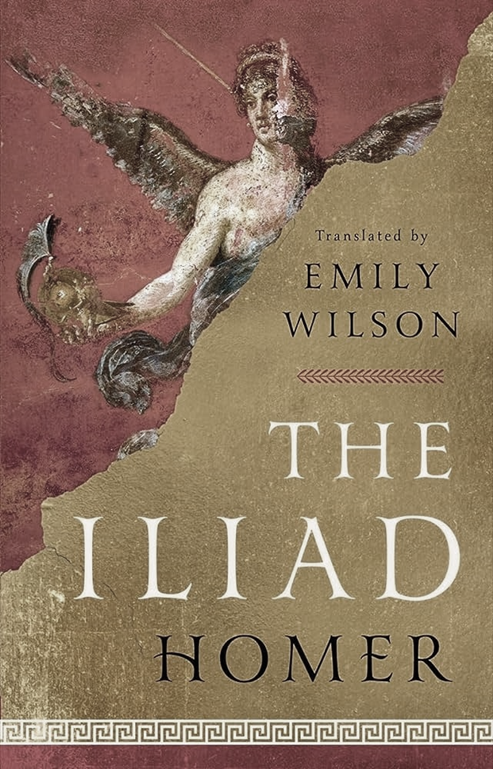
The Iliad, by Homer.
CONCLUSION
The conclusion is that, unless we have a scientific approach to reality, we will represent it erroneously and, in that case, we will suffer the pain of cognitive dissonance between reality and our minds. But, if we represent reality accurately, and we include the fact of our death, we will enjoy cognitive consonance because our mind will match the physical space of objective reality. That would allow us to live like Achilles, when he said: “I’ll tell you a secret. Something they don’t teach you in your temple. The gods envy us. They envy us because we’re mortal, because any moment might be our last. Everything is more beautiful because we’re doomed. You will never be lovelier than you are now. We will never be here again.”
Now the answer to question 71.
QUESTION N° 71
The value of our life is appreciated when we accept has an end?
a) Yes.
b) No.
The answer is: a) Yes. When you accept the fact that your physical existence, identity and consciousness has a definitive and absolute end, forever, every moment of your life fulfils with glory, every moment of your daily life becomes heroic.
Leave your comments here.
